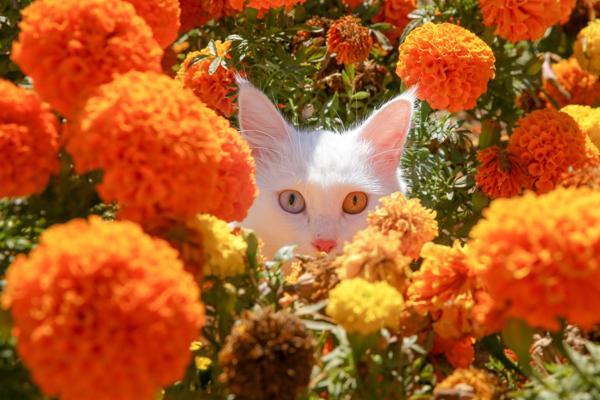Van cats petted from afar during pandemic
VAN


Van cats kept under protection in the Cat Villa by Van Yüzüncü Yıl University (YYÜ) Van Cat Research and Application Center were negatively affected by the pandemic phase, being prohibited close contact with visitors.
Within the scope of the COVID-19 measures, some rules are implemented in the Cat Villa for the health of both cats and employees. In the center where visitors were previously allowed to pet and feed cats are no longer allowed to come in their close proximity.
The center is making strict efforts to protect the generation of Van cats who are valued for their friendliness, silky fur, long and fluffy tail like that of a fox, different eye colors and a fondness for water.
Taking care of the nutritional needs of the Van cats, the center has added Pearl mullet, a type of endemic fish living in Lake Van, which they have been feeding the cats for the last three months.
Speaking to the state-run Anadolu Agency, YYÜ Van Cat Research Center Director Professor Abdullah Kaya said that they do not know what kind of threat COVID-19 could pose to animals and that they temporarily closed the center to visit as of March.
Kaya stated that they strictly isolated all animals and definitely do not allow contact with humans.
Stating that they have taken all precautions regarding the disinfection of the center, the care of the animals and the health of the personnel, Kaya said: “Normally, visitors could go near cats, feed and pet them with their hands. Animals got used to this situation. Now they are forbidden. Visitors can only watch them remotely within the rules of social distancing and by wearing a mask.”
“Cats, on the other hand, are used to being petted, and when they see people, they immediately gather in a place close to them to get the affection from the visitors. Therefore, they were deprived of both human contact and love during this process. Although our personnel try to meet this need, we had to reduce the number of our personnel in this process too,” he added.
Stating that they worked with great devotion during the pandemic process, Kaya said, “We aimed to handle this process with the least impact where even on the days of curfews, we came to our center every day, took care of our animals and checked their conditions.”
Kaya said that normally visitors buy food to feed the cats, and now that there is no such situation, the maintenance costs have increased and that they have found an alternative solution to this process with pearl mullet, which is abundant in the city and is affordable.
“In order to meet the wet food needs of cats, we try to give pearl mullets at least twice a week, at most four days in addition to their food. It has high nutritional value and is very healthy. Our cats love the fish we give in the form of minced meat.”
